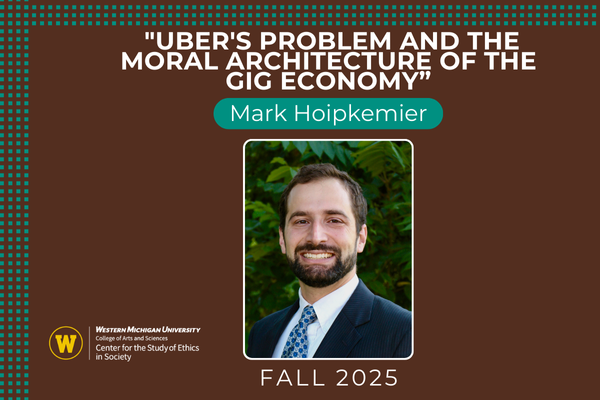Uber's Problem and the Moral Architecture of the Gig Economy

"Uber's Problem and the Moral Architecture of the Gig Economy,” Mark Hoipkemier, Assistant Research Professor in Business Ethics and Society at the University of Notre Dame. 6:30 p.m., 1060 Fetzer Center. Co-sponsor: Department of Philosophy.
Like many titans of the gig economy, Uber has faced recurrent legal and political battles regarding its relation to the millions of drivers who actually provide its rides. Uber maintains that its drivers are “independent contractors” who sign short-term contracts to perform a short-term service. Yet many of those drivers insist that they are not really independent but are pervasively subject to Uber’s oversight and influence, so they deserve health and unemployment insurance, collective bargaining, and all that goes with employment in a firm. Courts around the world have reached divergent verdicts, variously classifying drivers as contractors or employees. Although the Uber problem may seem no more than an abstract legal dispute, what is actually at stake are rival visions of the moral architecture of our new tech-mediated economy. Are Uber and similar platforms ultimately no more than price-guided private exchange, or are they actually new forms of business association oriented to shared goals? On a neo-Aristotelian account, all genuine common action demands allegiance to the common end, whereas impersonal market contracts are morally oriented to coordinated private gain. This talk argues that Uber’s surveillance and control over its drivers bespeaks hierarchical power beyond mere exchange, giving drivers real membership in a shared project and a just claim on shared goods. Ultimately, the problem with Uber is not that it aspires to promote private benefits (flexible wages for drivers, profits for the company), which are good things in themselves, but rather a failure of integrity, since the company implicitly exercises power over its drivers while explicitly denying that it does so.

